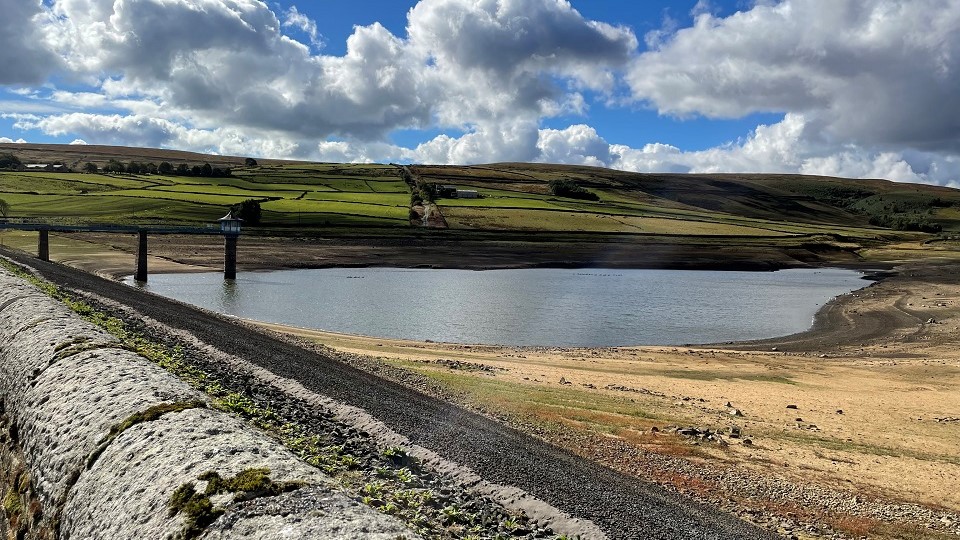The Environment Agency has issued 12 drought permits to Yorkshire Water, to last until 31 March 2023, as reservoir levels across Yorkshire are estimated to be at 25% lower levels than they were this time last year.
Yorkshire Water submitted the drought permit applications for the North West Group of Reservoirs across Wharfedale, Bingley, Shipley, Craven, Yeadon, Baildon and the Worth Valley.
The water company’s current licences require them to release a certain amount of water from the reservoirs to maintain the health of the river. The permits allow them to reduce the amount released to conserve water in the reservoirs and secure water supplies, while still maintaining necessary environmental protection for the river.
Earlier this month the applications were subject to a Planning Inspectorate public hearing after an objection from a member of the public. The Environment Agency considered the Inspector’s report when making its decisions.
Victoria Slingsby, Environment Agency Yorkshire Drought Manager, said:
“Despite recent rainfall in Yorkshire, this has not been enough to refill rivers and reservoirs and we are still facing a serious deficiency of water supplies.
“We only issue a permit if we are content that there are clear plans in place to mitigate any impact on the environment, along with strong evidence from Yorkshire Water of their ongoing commitment to reduce leaks and improve water efficiency.
“We will continue to work closely with Yorkshire Water as it develops the long-term solutions to protect water resources while drought conditions continue across Yorkshire.”
If a permit is used, Yorkshire Water will need to inform the Environment Agency before doing so. They will also need to carry out monitoring and mitigation to assess and manage potential environmental impacts.
To reduce unnecessary use of water and protect customer supplies and the environment, Yorkshire Water has already announced a temporary-use ban (TUB), prohibiting use of hosepipes by its customers.
Yorkshire officially moved to drought status on 15 August following six months of below average rainfall combined with high temperatures, which affected most of the country.
Earlier this month the National Drought Group forecast that average rainfall levels over winter will still not be sufficient to avoid impending drought or drought conditions into next year. Some water companies suggested conditions will remain beyond spring in some areas, including Yorkshire, if rainfall remains below average.
Reservoir levels across Yorkshire are 25% lower than they were at this time last year. The exceptional shortage of rainfall this year, and the possibility of a shortage continuing over the winter, led to Yorkshire Water applying for these permits to help the North West group of reservoirs to refill.
The 12 reservoirs are:
- Carr Bottom Reservoir (Wharfedale)
- Doe Park Reservoir (Bingley)
- Eldwick Reservoir (Shipley)
- Embsay Reservoir (Craven)
- Grimwith Reservoir (Craven)
- Hewenden Reservoir (Bingley)
- Leeming Reservoir (Worth Valley)
- Leeshaw Reservoir (Worth Valley)
- Reva Reservoir (Yeadon)
- Silsden Reservoir (Craven)
- Weecher Reservoir (Baildon)
- Springhead Weir (Worth Valley)



